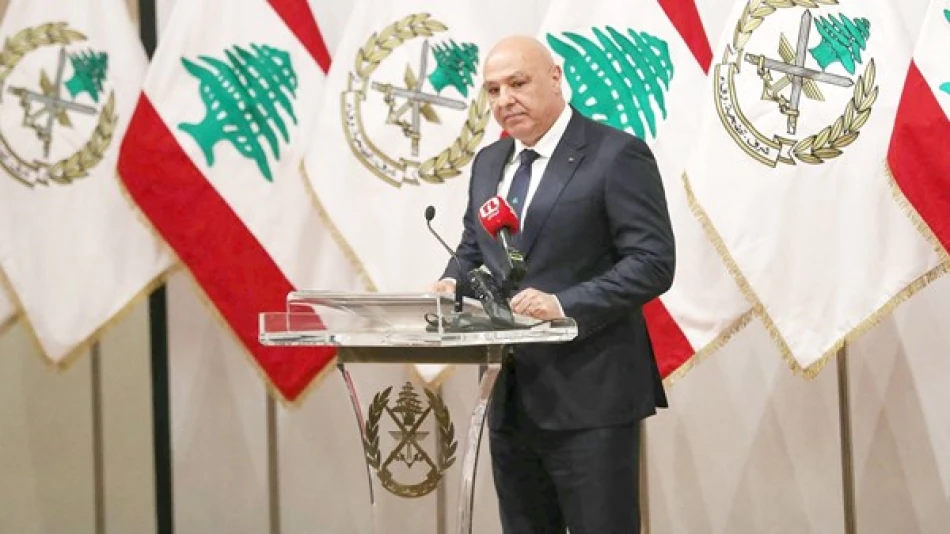
Lebanese President Demands Hezbollah Disarm, Calls for Israel's Withdrawal
Lebanon's New President Demands Hezbollah Disarmament as Peace Talks Intensify
Lebanese President Joseph Aoun has escalated his calls for Hezbollah to surrender its weapons, warning that the militant group's continued armament provides Israel with justification for ongoing attacks. The demand comes as Lebanon prepares to present a modified version of an American peace proposal to the cabinet next week, marking a significant shift in the country's approach to resolving the conflict.
A Direct Challenge to Hezbollah's Military Wing
Speaking to army officers, President Aoun made clear that Lebanon's response to the U.S. draft proposal would include demands for the "withdrawal of weapons from all armed forces, including Hezbollah, and their transfer to the Lebanese Army." This represents one of the most direct challenges to Hezbollah's military capabilities from a Lebanese president in recent years.
Aoun's position reflects a broader understanding that Hezbollah's arsenal—estimated to include over 100,000 rockets and missiles—has become both a strategic liability and a diplomatic obstacle. The group's weapons cache, once viewed by some Lebanese as a deterrent against Israeli aggression, is now being reframed as a catalyst for continued conflict.
Lebanon's Counter-Proposal Takes Shape
The Lebanese modifications to the American draft proposal include several key demands that go beyond disarmament. Lebanon is calling for an immediate cessation of Israeli hostile actions "by air, land, and sea, including assassinations," alongside Israel's withdrawal behind internationally recognized borders and the release of prisoners.
Most significantly, the proposal demands the extension of Lebanese state authority over all Lebanese territory—a direct reference to areas currently under Hezbollah's de facto control, particularly in southern Lebanon and the Bekaa Valley.
Strategic Timing and Political Calculations
Aoun's timing appears calculated to capitalize on Hezbollah's weakened position following months of Israeli strikes that have degraded the group's military infrastructure and eliminated key leadership figures. The organization, while still formidable, has lost significant operational capacity and popular support, particularly among Lebanese who have borne the brunt of Israeli retaliation.
The president's call for political parties to "seize this historic opportunity" suggests an awareness that current conditions may represent the best chance in decades to reassert state control over non-state armed groups.
Regional Implications and Precedents
Lebanon's approach mirrors successful disarmament processes in other post-conflict societies, though with crucial differences. Unlike the Irish Republican Army's decommissioning in Northern Ireland or various militia disarmaments in West Africa, Hezbollah remains both a military force and Lebanon's most powerful political party, controlling key ministries and commanding significant Shia support.
The success of any disarmament initiative will likely depend on whether Hezbollah can be offered sufficient political guarantees and economic incentives to compensate for the loss of its military leverage. Iran's position will be equally critical, as Tehran has invested billions in building Hezbollah's arsenal as part of its regional deterrence strategy against Israel.
Market and Economic Considerations
For Lebanon's battered economy, successful implementation of Aoun's proposal could unlock international aid and investment that has been withheld due to Hezbollah's influence. The country's financial system, already collapsed, desperately needs the kind of international support that typically requires demonstrable progress on governance and security sector reform.
However, the transition period could prove economically destabilizing if not carefully managed, as Hezbollah's extensive social services network and employment opportunities would need alternative funding sources to prevent further social unrest.
Most Viewed News

 Layla Al Mansoori
Layla Al Mansoori






